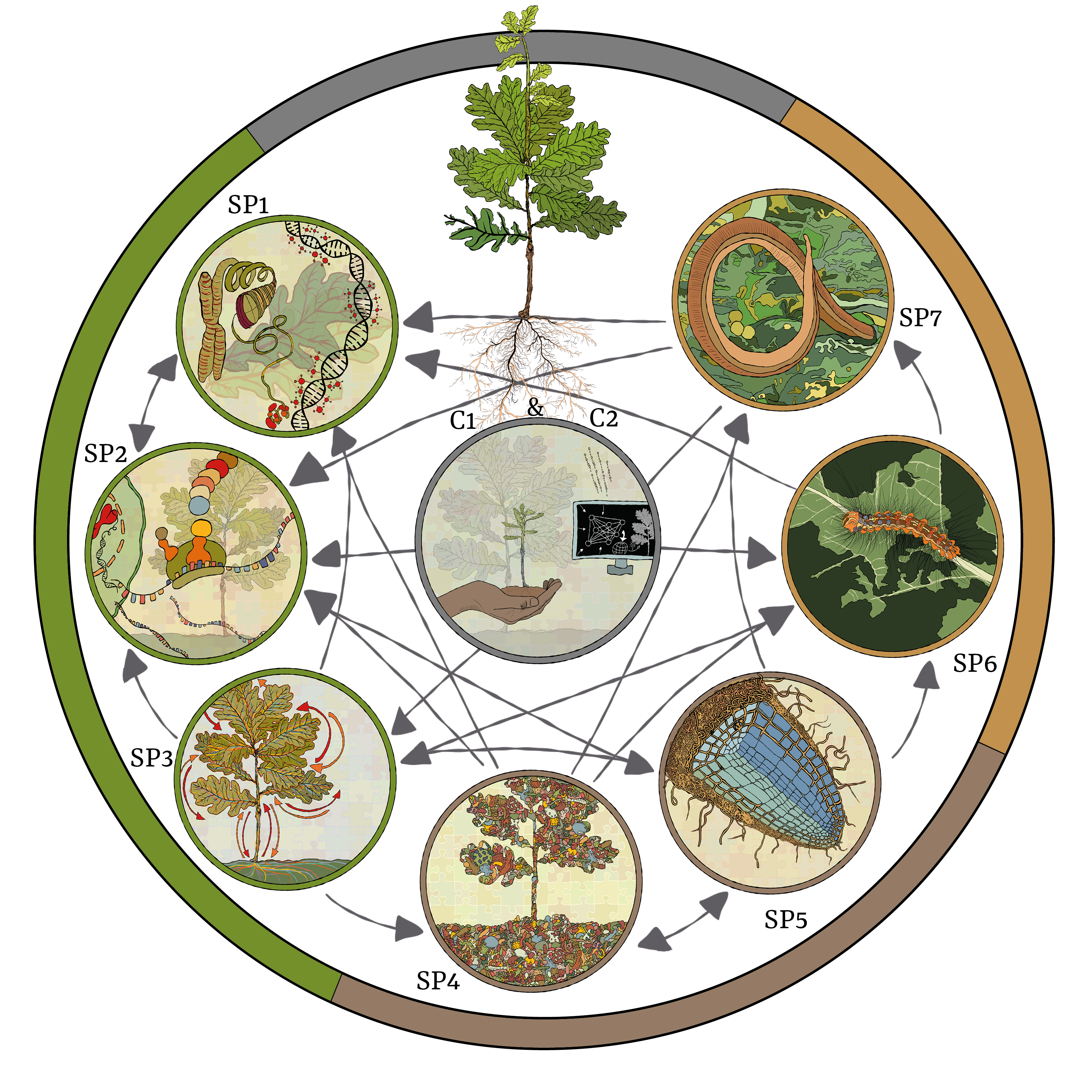PhytOakmeter
Using clonal oak phytometers to unravel acclimation and adaptation mechanisms of long-lived forest tree holobionts to ecological variations and climate change (2023 – 2026)

Climate change and global species loss are the major environmental threats to human well-being in the coming decades. However, despite more than 200 years of organized forestry and research in temperate forests, some fundamental knowledge is still missing about (i) the phenotypic plasticity of forest trees, (ii) about the interplay of trees with their microbiome, and (iii) about how these interactions may facilitate acclimation (regulatory changes) and adaptation based on genetic changes of trees and/or their holobiont partners. In this light, we have assembled a group of experts in (population) genetics, epigenetics, transcriptomics, metabolomics as well as in tree physiology and morphology working on a wide range of organisms from bacteria to trees to investigate a tree holobiont. We focus on Quercus robur L., a foundation species of European forests with a long lifespan and broad geographical distribution and an exceptionally high diversity of biotrophic interactions. A central benefit of working with Q. robur is the availability of the DF159 clone that is readily in-vitro propagated in large numbers. This resource allows us to exclude genetic variability of the tree host in order to disentangle the role of the holobiont partners in the acclimation and adaptation processes of the oak holobiont. In PHASE I of the RU, the subprojects SP1 – SP7 will mainly work on three experimental platforms with the clone DF159 to
(i) perform controlled experiments in two Ecotrons that expose the holobiont to two moderate droughts (previous year and current year for longer-term stress memory, spring and summer for shorter term stress memory) and above- and below-ground herbivory, respectively;
(ii) expose oak clonal saplings to the microclimatic variability of the canopy of mature trees; and
(iii) assess clonal oak saplings released across Germany and Europe for analyzing A&A mechanisms under a wide range of environmental conditions.
The research unit FOR5571 is funded by the DFG, and coordinated by Prof. Dr. Lars Opgenoorth (University Marburg).
For more details on the project and the subprojects, please have a look at our website.

